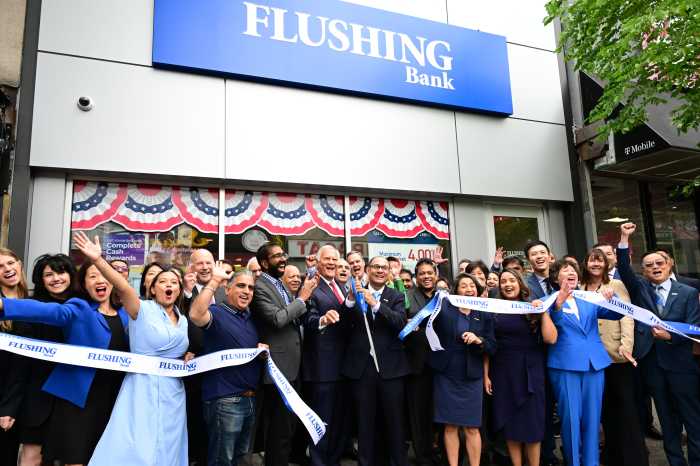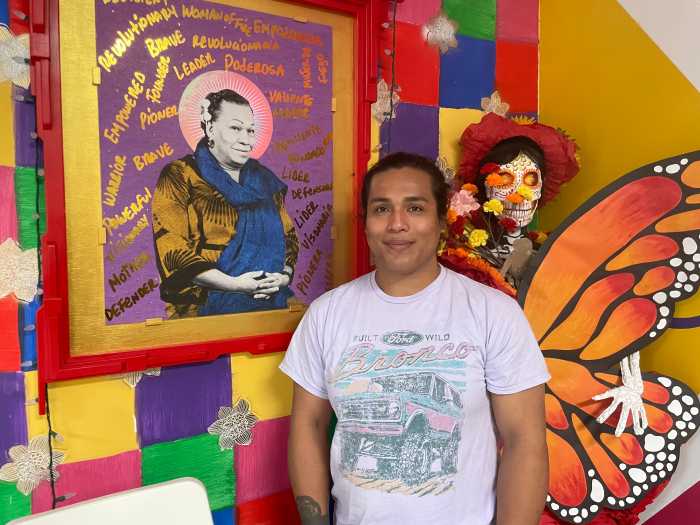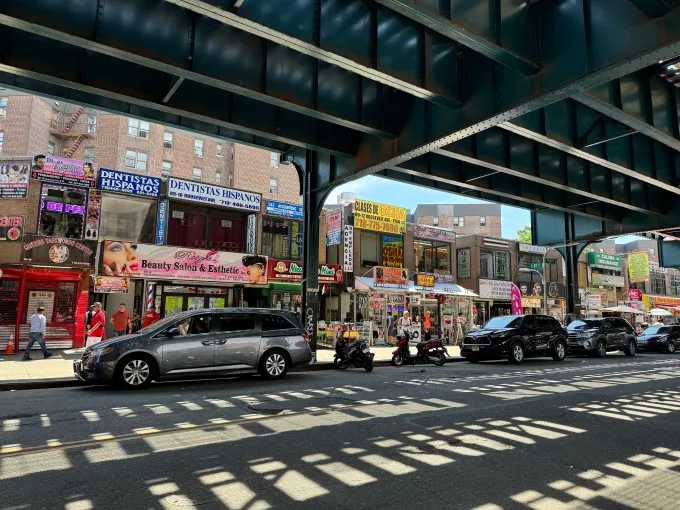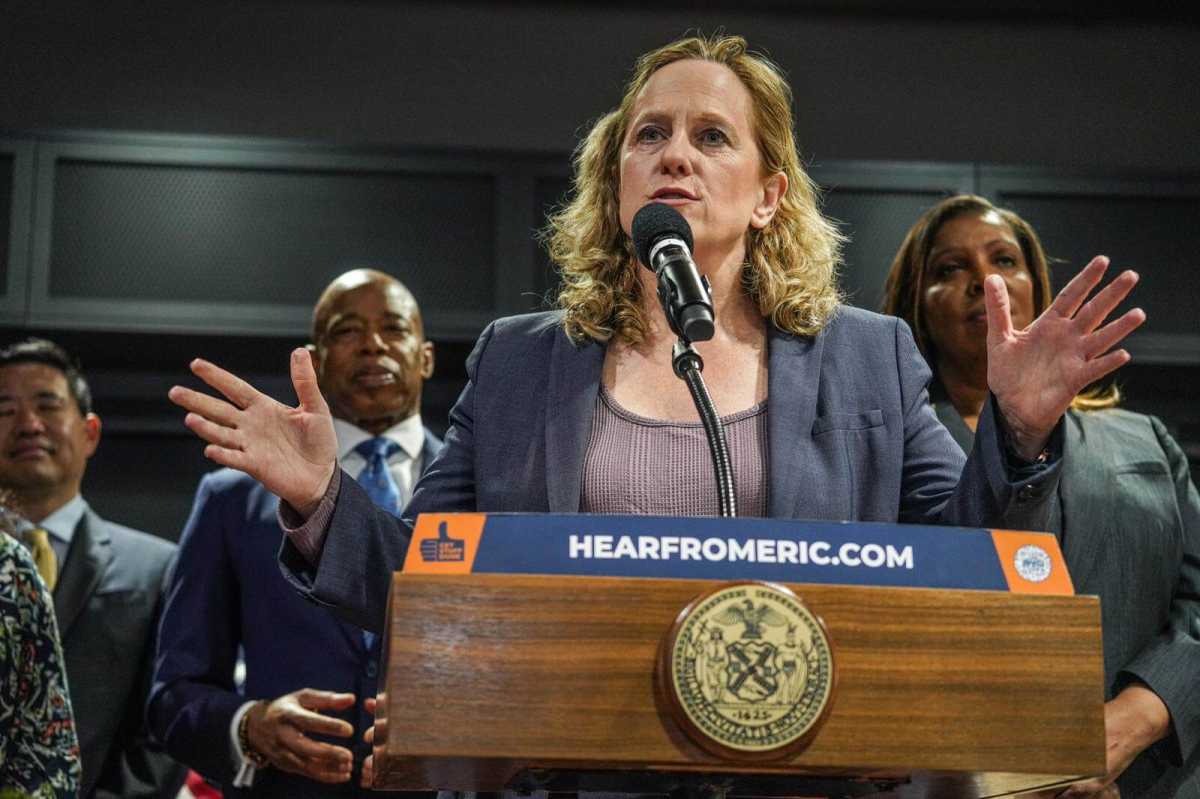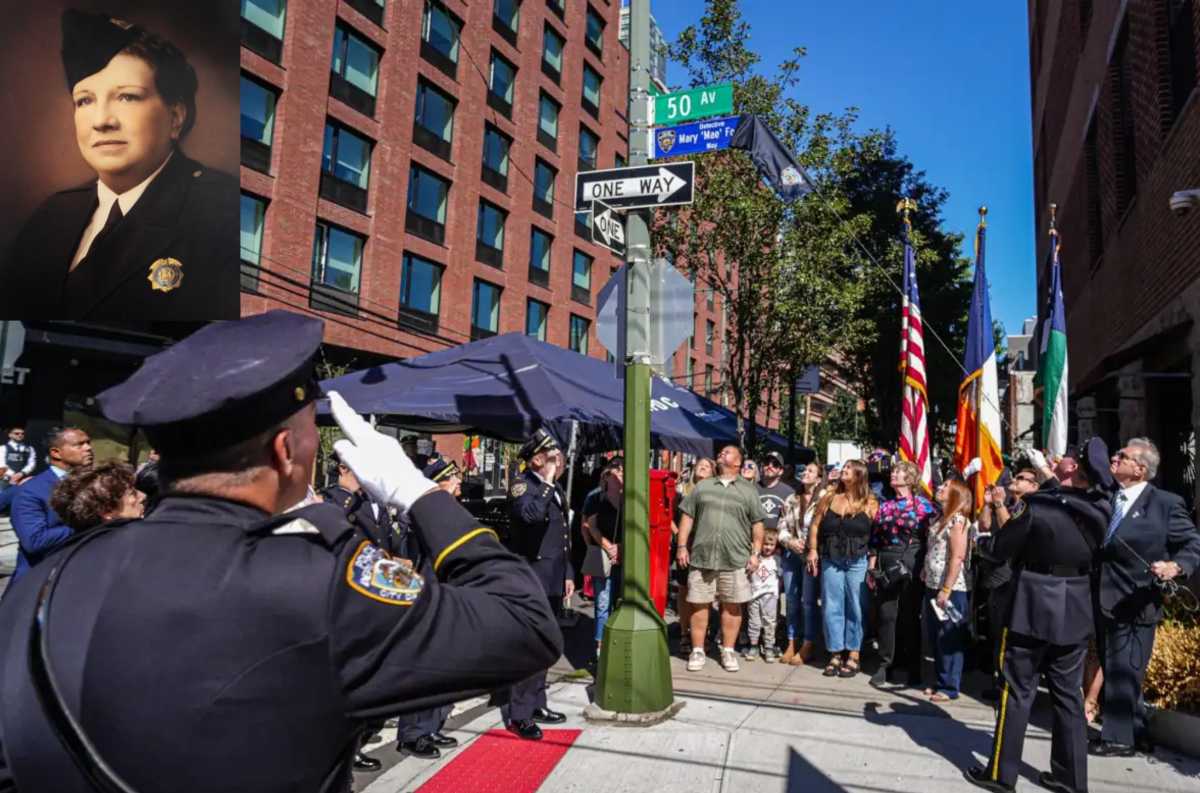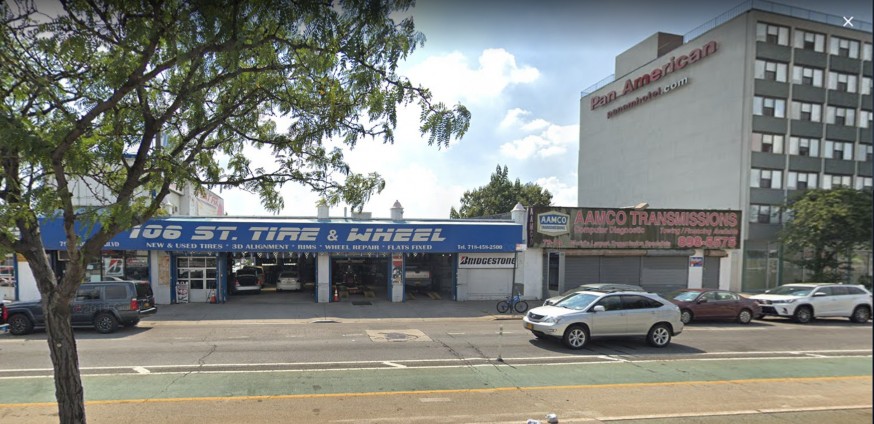
The proposed school will go on the sites occupied by AAMCO Transmissions and 106 St. Tire & Wheel (Google Maps)
Dec. 2, 2019 By Allie Griffin
The owner of the homeless shelter at the former Pan American hotel has filed plans to build a school on an adjacent site, according to building records.
David Levitan, one of the largest homeless shelter landlords in the city, has filed plans with the Department of Buildings to construct a 4-story school at 79-20 Queens Blvd in Elmhurst, on the lot directly next to the 79-00 Queens Blvd. shelter that he also owns.
Levitan, who is listed as the property owner on record, filed the plans on Nov. 22 to build the 39,764-square-foot school.
The school will house at least 18 classrooms, as well as multiple science labs, a music room, a fine arts room, a media lab, a teachers lounge, a cafeteria and kitchen, a rooftop play area and several offices, according to the plans.
The building will reach 53 feet in height, according to building plans. The plan makes no mention of whether the school will be public or privately run.
The school will sit next to the shelter, as Levitan bought a number of properties along the strip.
Levitan bought three sites — 79-20 Queens Blvd., 79-14 Queens Blvd. and 79-13 51st Ave. — next to the former hotel for $3,750,000 in April 2014, months after he brought the hotel site for $23,100,000 in January 2014, according to city records. He bought each lot from Panamendel Corp.
The Pan Am hotel was officially sanctioned a permanent shelter site in February 2016 after City Comptroller Scott Stringer rejected the contract three times. It was first converted to a temporary shelter in 2014 and drew ire from the surrounding community.
Community members organized several protests against the 180-family shelter which drew hundreds and raised racial tensions between the protestors — many who were Chinese immigrants — and the majority black and Latino shelter residents.
The building’s owner Levitan is the co-founder of Liberty One Group and has become notorious for buying properties across the city and turning them into homeless shelters through the Department of Homeless Services’ open requests for proposals.
He owns several shelter buildings in Queens including one in College Point located at 127-03 20th Ave., which faced backlash from community members and elected officials.
Council Member Paul Vallone called out Levitan in a November 2018 petition against the incoming College Point shelter.
“While the city’s policy for siting shelters is aimed to make it easier to find locations, it has also allowed developers and property owners to greedily profit from the homelessness crisis,” Vallone wrote in the petition.
“David Levitan, part owner of Liberty One Group, has made a name for himself by building and converting multiple sites throughout the city into shelters and profiting millions.”
The shelter opened this September, but after criticism it was ultimately switched from housing 200 men to 200 women.
Levitan has been operating shelters for at least two decades and his portfolio spans 54 properties and 3,719 units, according to The Real Deal, which reviewed DHS records.
Levitan didn’t immediately respond to a request for comment.

